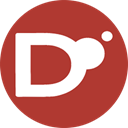Top Erlang Alternatives for Scalable and Concurrent Systems
Erlang is a powerhouse, renowned for its ability to build massively scalable, fault-tolerant, and soft real-time systems. Designed by Ericsson for non-stop applications in areas like telecoms and banking, its built-in concurrency, distribution, and hot-swapping capabilities are truly impressive. However, for various reasons—be it specific project requirements, team familiarity, or ecosystem preferences—developers often seek an Erlang alternative. This article explores some of the best programming languages that can serve as excellent alternatives to Erlang, offering similar or complementary strengths for your next big project.
Excellent Erlang Alternatives
While Erlang excels in its niche, a diverse array of programming languages can offer robust solutions for building high-performance, concurrent, and distributed applications. Let's dive into some of the top contenders.

Python
Python is an interpreted, object-oriented, and extensible programming language known for its clarity and versatility. As a free and open-source language available across multiple platforms including Mac, Windows, and Linux, Python is an excellent Erlang alternative for those seeking a highly readable language with a vast ecosystem of libraries for various applications, including web development, data science, and backend services. Its dynamic typing and garbage collection simplify development, though its concurrency model differs from Erlang's actor-based approach, often relying on threads or asynchronous programming.

Java
Java is a general-purpose, class-based, and object-oriented programming language, specifically designed for platform independence. Available as Free Personal and Open Source, it runs on Windows, Linux, Mac, and numerous mobile platforms like Android. Java's strong emphasis on object-oriented programming, cross-platform compatibility, and robust garbage collection make it a strong Erlang alternative for large-scale enterprise applications that demand high performance and reliability, though its concurrency patterns typically involve threads and concurrent utilities rather than Erlang's lightweight processes.

PHP
PHP is a widely-used general-purpose scripting language, particularly suited for web development and embeddable into HTML. As a free and open-source language available on Mac, Windows, Linux, and BSD, PHP serves as a pragmatic Erlang alternative for web-centric applications where rapid development and widespread hosting support are key. While its primary strength lies in stateless web requests rather than persistent concurrent processes like Erlang, its simplicity and vast community make it a go-to for many web projects.

C++
C++ is a powerful, multi-paradigm, compiled, and general-purpose programming language. Available as free and open-source on Mac, Windows, Linux, and BSD, C++ is regarded as an intermediate-level language offering immense control over hardware resources. It's an excellent Erlang alternative for systems programming, high-performance computing, and applications where raw speed and efficient resource management are paramount. While it lacks Erlang's built-in fault tolerance and concurrency model, libraries exist to achieve similar patterns, albeit with more manual effort.

Ruby
Ruby is a dynamic, reflective, object-oriented programming language, combining syntax inspired by Perl with Smalltalk-like features. As a free and open-source language available across Mac, Windows, Linux, and BSD, Ruby is a compelling Erlang alternative for rapid application development, particularly in web services with frameworks like Ruby on Rails. Its focus on programmer productivity, dynamic typing, and a strong package manager make it ideal for projects where development speed and elegant code are prioritized.

C#
C# (C-Sharp) is a multi-paradigm programming language developed by Microsoft, encompassing strong typing, imperative, declarative, functional, generic, and object-oriented approaches. Available as free and open-source on Mac, Windows, Linux, and BSD, C# is a powerful Erlang alternative within the .NET ecosystem for building robust, scalable applications, including web services, desktop applications, and games. Its mature ecosystem, excellent tooling, and support for concurrent programming patterns via async/await make it a strong contender for various enterprise solutions.

Go (Programming Language)
Go, often referred to as Golang, is an open-source programming language developed by Google, designed to make it easy to build simple, reliable, and efficient software. As a free and open-source language available on Mac, Windows, Linux, and BSD, Go is a strong Erlang alternative, especially for building high-performance network services and distributed systems. Its built-in concurrency model via goroutines and channels offers a similar lightweight concurrency approach to Erlang's processes, making it highly effective for highly concurrent applications.

Dart
Dart is a web programming language developed by Google, now widely known for its use in Flutter for cross-platform mobile and web development. As a free and open-source language available on Mac, Windows, Linux, and Web, Dart presents an interesting Erlang alternative for applications that require a robust client-side or full-stack solution. While its concurrency model differs, its modern syntax and strong ecosystem make it suitable for building reactive and scalable applications, particularly those with a significant UI component.

Haskell
Haskell is an advanced purely-functional programming language, known for its strong static typing and academic rigor. As a free and open-source language available on Mac, Windows, Linux, and BSD, Haskell is a powerful Erlang alternative for those who prioritize correctness, type safety, and elegant solutions to complex problems. While it shares Erlang's functional roots, its approach to concurrency and fault tolerance is distinct, often relying on software transactional memory (STM) or monadic concurrency patterns.

D (Programming Language)
D is a multi-paradigm language with C-like syntax and static typing, pragmatically combining efficiency, control, modeling power, safety, and programmer productivity. As a free and open-source language available on Mac, Windows, Linux, and BSD, D offers a compelling Erlang alternative for performance-critical applications where direct memory control and strong typing are desired, without sacrificing modern language features like functional programming constructs and contract programming.
Choosing the right Erlang alternative depends heavily on your specific project needs, team expertise, and desired ecosystem. Each language listed here offers unique advantages in terms of concurrency, performance, development speed, and community support. We encourage you to explore these options further to find the best fit for your next highly available, scalable system.